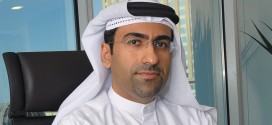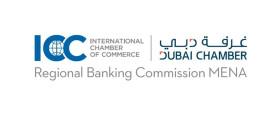
The eagerly awaited 2012/13 edition of the World Islamic Banking Competitiveness Report was launched at a specially convened session at the 19th Annual World Islamic Banking Conference in Bahrain.
Developed in collaboration with Ernst & Young, the report entitled Growing Beyond: DNA of a Successful Transformation was presented by Ashar Nazim, partner, head of the Islamic Banking Excellence Center, Ernst and Young, and Shoaib Qureshi, senior manager Islamic financial services MENA, Ernst and Young.
It said that “Islamic banking growth outlook continues to be positive, growing 50 per cent faster than the overall banking sector in several core markets. Islamic banking assets globally grew to $1.3 trillion in 2011, suggesting an average annual growth of 19 per cent over the past four years. However it is a different story when it comes to profitability. The industry’s average ROE was 12 per cent compared to 15 per cent for conventional in 2011.”
The report also noted that “Islamic banks continue to grapple with multiple challenges relating to sub-scale operation, asset quality, negative operating income from core activities and a weak risk culture.
“The severity of performance challenge has prompted several institutions to initiate wide-ranging transformation programmes that include regulatory transformation – involving compliance risk, capital optimisation, integrated balance sheet management and liquidity management; and risk transformation – around Shari’a governance, single data management framework, segment specific risk models and fund transfer pricing capabilities and retail banking transformation – strengthening a customer centric operating models, channel integration and technology enablement. Successful transformation around those three areas could potentially increase the profit pool of Islamic banks by 25 per cent by 2015.”
The three-day event was attended by 1,227 industry leaders from 52 countries representing more than 260 international and regional organisations. Speakers discussed critical issues that the global Islamic finance industry is currently facing and how it can adapt to the new dynamics of global finance.
Speaking to the media present at the conference, David McLean, chief executive of the World Islamic Banking Conference, noted that “Islamic finance activities continue to venture beyond national boundaries and the industry’s international growth is now stronger than ever. The dynamic pace of innovation in the international Islamic finance industry has widened the range of financial products and services available to the global audience thereby significantly increasing its appeal.
“In the aftermath of the global financial crisis, the global economy is on its quest for a financial system that promotes sustainable growth. This highlights tremendous growth potential for Islamic finance given its inherent strengths of association with real economic activities. It is, however, essential that Islamic finance successfully adapts to the new dynamics of global finance in order to realise this vast potential. This requires further innovation as well as the global synchronisation of product offerings, business models, risk management practices and the supporting regulatory and legal infrastructure.”
A similar view was also expressed by Mohamed Jamil Berro, group CEO of Al Hilal Bank, who said that “due to its substantial growth and reliability, Islamic finance has now become a global phenomenon with a number of non-Muslim countries also showing keen interest in this dynamic industry.
“While the conventional banking and finance industry recuperates from the effects of the global financial crisis, there is now an excellent opportunity for Islamic finance to prove its competitiveness and enhance its profile in the global financial landscape. This calls for a stronger industry architecture that would allow for the most efficient functioning of the industry not only within national economies but also across borders.”
 Cash And Trade Magazine For Cash and Trade professionals in the Middle East
Cash And Trade Magazine For Cash and Trade professionals in the Middle East




